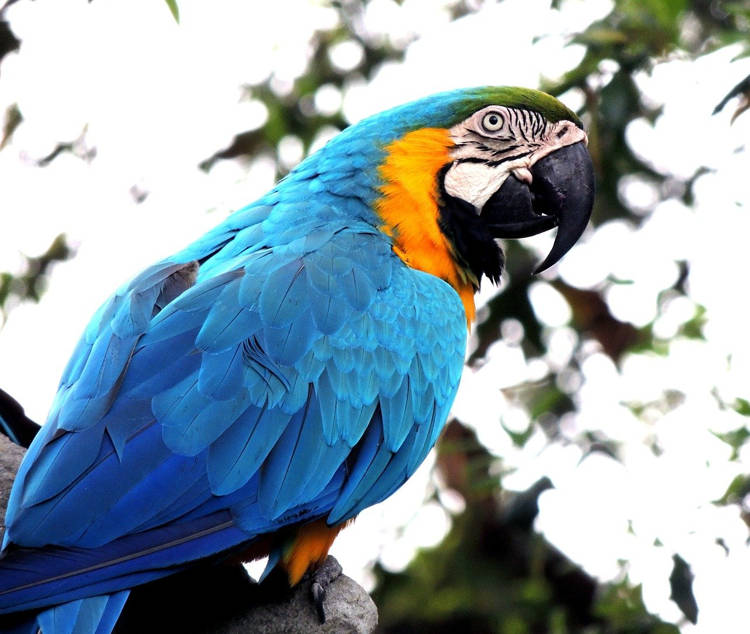Almost every morning for the past two decades, Juliet the macaw has been visiting the local zoo in Rio de Janeiro to interact with others of her kind through the metal enclosure. She is the only wild macaw in the Brazilian metropolis, and this is her only opportunity to socialize.
Macaws are social birds, so loneliness is a tough burden to bare for Juliet, a beautiful blue-and-yellow macaw who calls Rio home. She is the only wild specimen seen in city since 1818, and no one really knows much about her. Zoo staff named the bird Juliet, but they don’t even know if she is actually female. It’s really hard to tell with macaws, and to establish her true gender they would need to capture the bird, and either examine her gonads or take blood or feather samples. And there’s really no need to put Juliet through all that stress just to satisfy human curiosity.

Photo: Christopher Kuszajewski/Pixabay
All that everyone knows is that Juliet loves coming to the zoo every morning to be with others of her species. Sometimes she engages in grooming behavior through the metal fence, other times she just sits there simply enjoying the company, before flying off to God knows where for the rest of the day.
Macaws have an average life expectancy of about 35 years, and Juliet has been around for at least two decades, so she’s no spring chicken. Yet, she has never had a mate, built a nest or had chicks, and she probably never will, because there’s just no one to do it with, which is pretty sad, if you think about it.
“They’re social birds, and that means they don’t like to live alone, whether in nature or captivity. They need company,” Neiva Guedes, president of the Hyacinth Macaw Institute, told AP, adding that Juliet “very probably feels lonely, and for that reason goes to the enclosure to communicate and interact.”
Luckily, there is hope for Rio’s loneliest bird. Through Refauna, an initiative which reintroduces species into protected areas, scientists want to raise some 20 chicks that will receive training on wild food sources, as well as predator and power line avoidance, before being released into the wild.
The birds will be released into Rio de Janeiro’s giant Tijuca Forest National Park, where Juliet is believed to spend her nights. Scientists hope the birds will help maintain balance in the local eco-system, by using their big beaks to crack seeds that other birds can’t, thus dispersing those seeds. But they will also become welcome company for Juliet, allowing her to fly with others of her kind for the first time in 20 years. And, who knows, maybe she’ll even find love.






